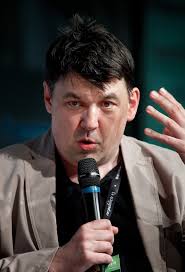
Introduction
Graham Linehan, an Irish writer known for his work on television series such as ‘Father Ted’, has become a polarising figure in recent years due to his outspoken views on gender identity and issues surrounding the transgender community. His stance has sparked significant public debate, making him an important figure in discussions on free speech and activism.
The Background
Linehan gained fame in the 1990s and early 2000s for his comedic writing, but his views have since raised eyebrows and led to social media backlash. In 2018, he became known for his criticisms of proposed legislation regarding gender identity that would seek to introduce self-identification for transgender individuals in the UK. Linehan argues that such measures could undermine women’s rights and lead to issues he deems concerning.
The Backlash
As a result of his declarations, Linehan has been a target of extensive criticism from many corners, including LGBTQ+ advocates and some of his own former colleagues who have accused him of transphobia. He has faced social media bans due to violations of platform policies regarding hate speech, compounding the controversy surrounding him. Supporters of Linehan assert that he is merely advocating for women’s rights and free speech, framing the discourse around the idea of protecting women’s spaces.
The Debate on Free Speech
The discourse surrounding Graham Linehan raises important questions about the boundaries of free speech. While many celebrate his right to express his views, others condemn the harmful impact of his statements on marginalized communities. This dichotomy has led to heated debates across various platforms, including public forums and social media, where opinions on his viewpoints are deeply split.
Current Events and Implications
In recent months, the conversation surrounding Linehan has extended beyond his individual views, connecting to larger societal issues regarding the treatment of LGBTQ+ individuals and the rights of women. Notably, protests and demonstrations have taken place, reflecting the growing tensions and the need for dialogue between differing perspectives. Such discussions are vital for understanding how society can reconcile the rights of all individuals involved.
Conclusion
Graham Linehan remains a contentious figure within the ongoing debate over gender and free speech, embodying the clash between activism and traditional viewpoints. As society grapples with these complex issues, his case serves as a reminder of the need for ongoing, respectful dialogue. As the field evolves, it will be crucial for all parties involved to consider the implications of their beliefs and the discourse surrounding them, fostering a more inclusive and understanding environment for everyone.
You may also like

Discovering the Beauty and Culture of Norway

The Inspiring Rise of Sasha Riley in Entertainment
